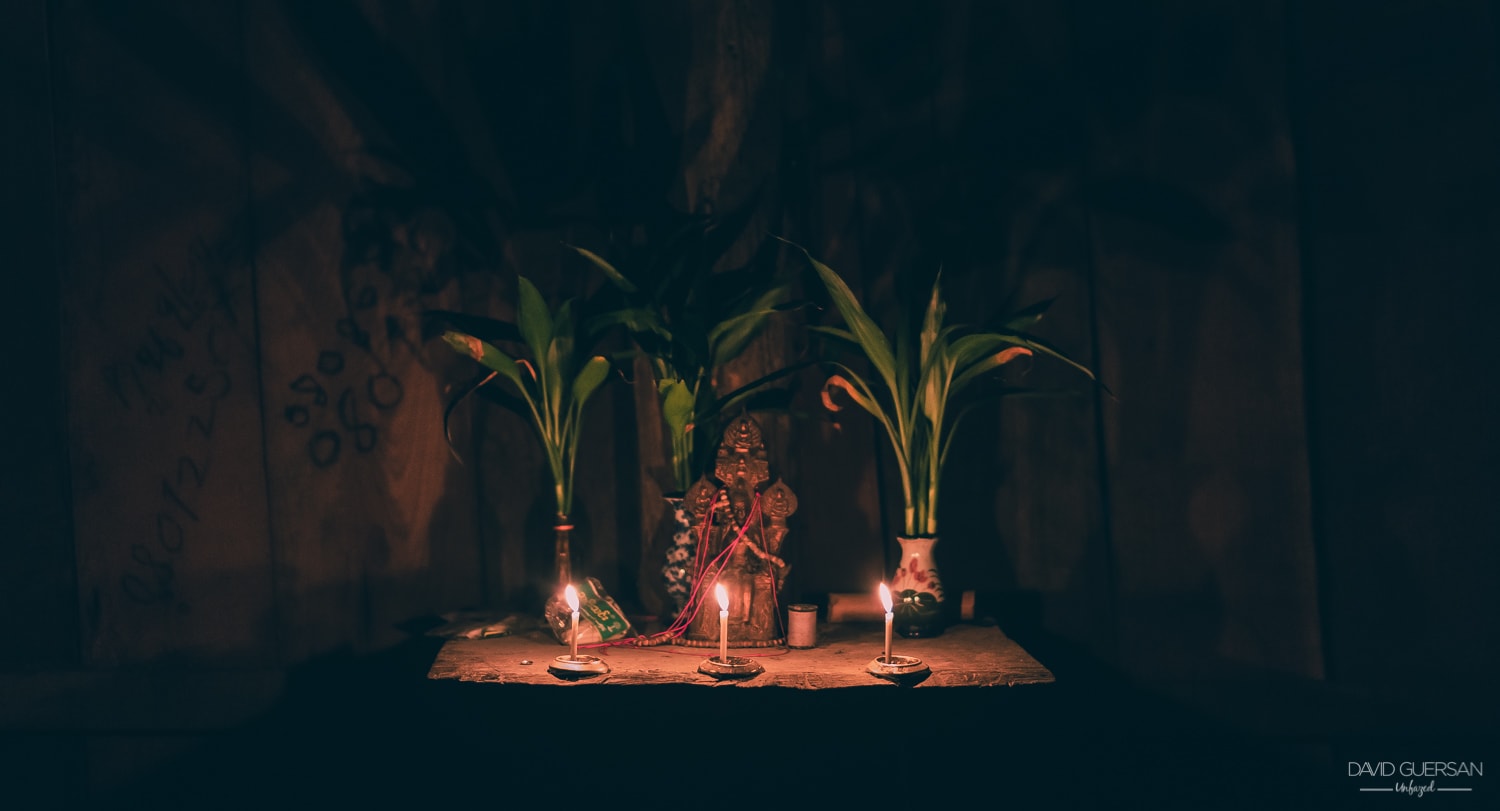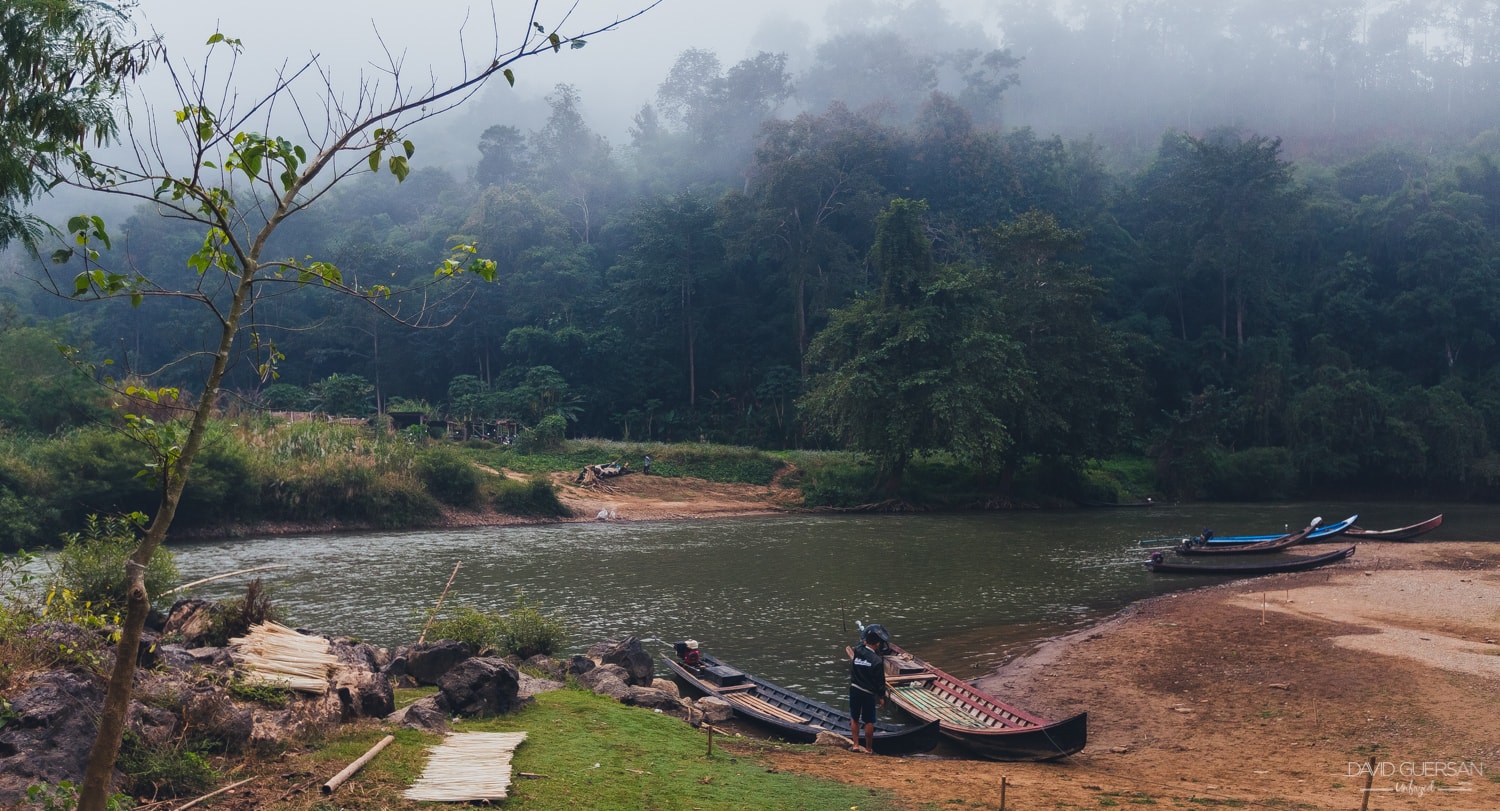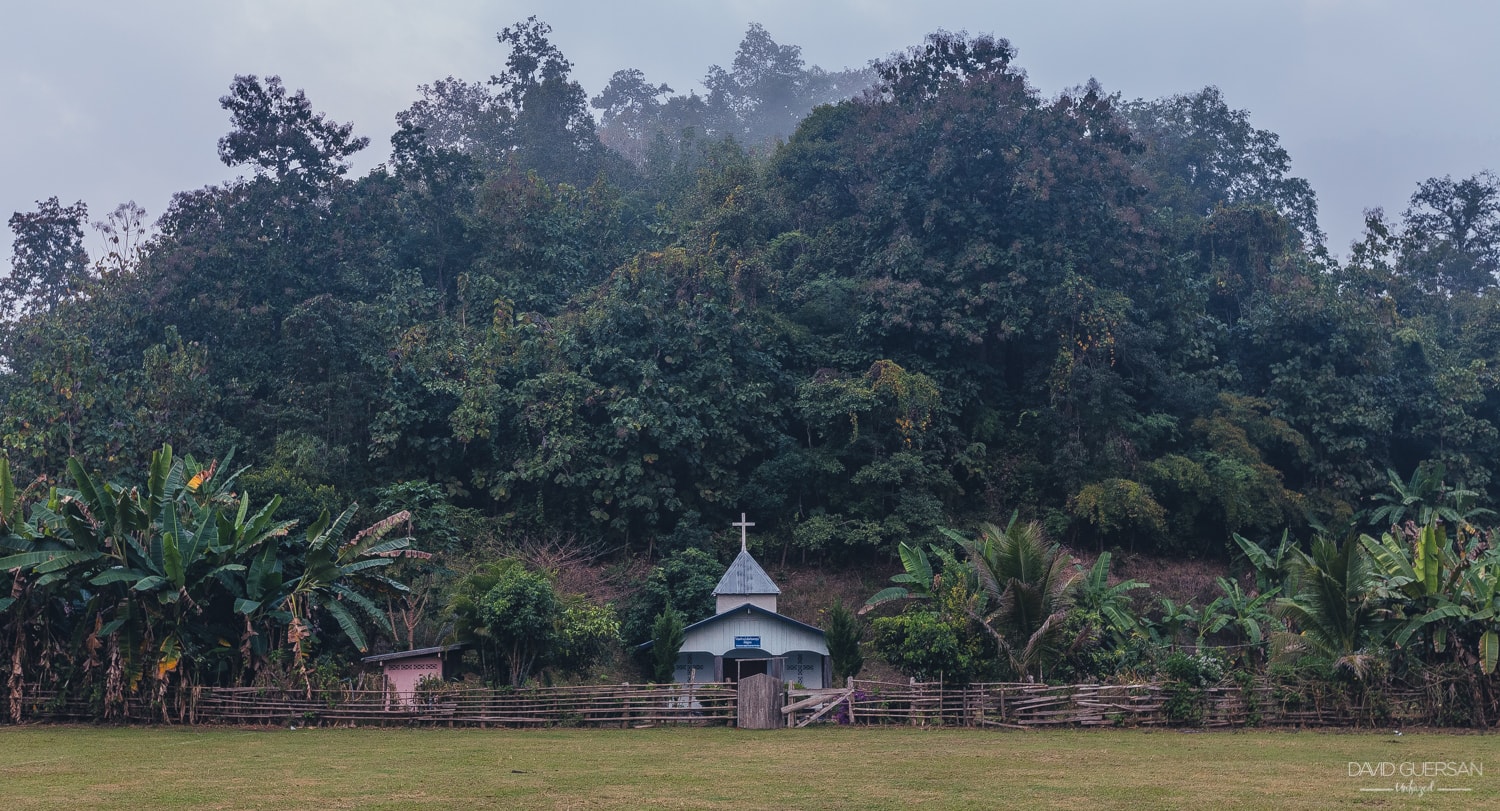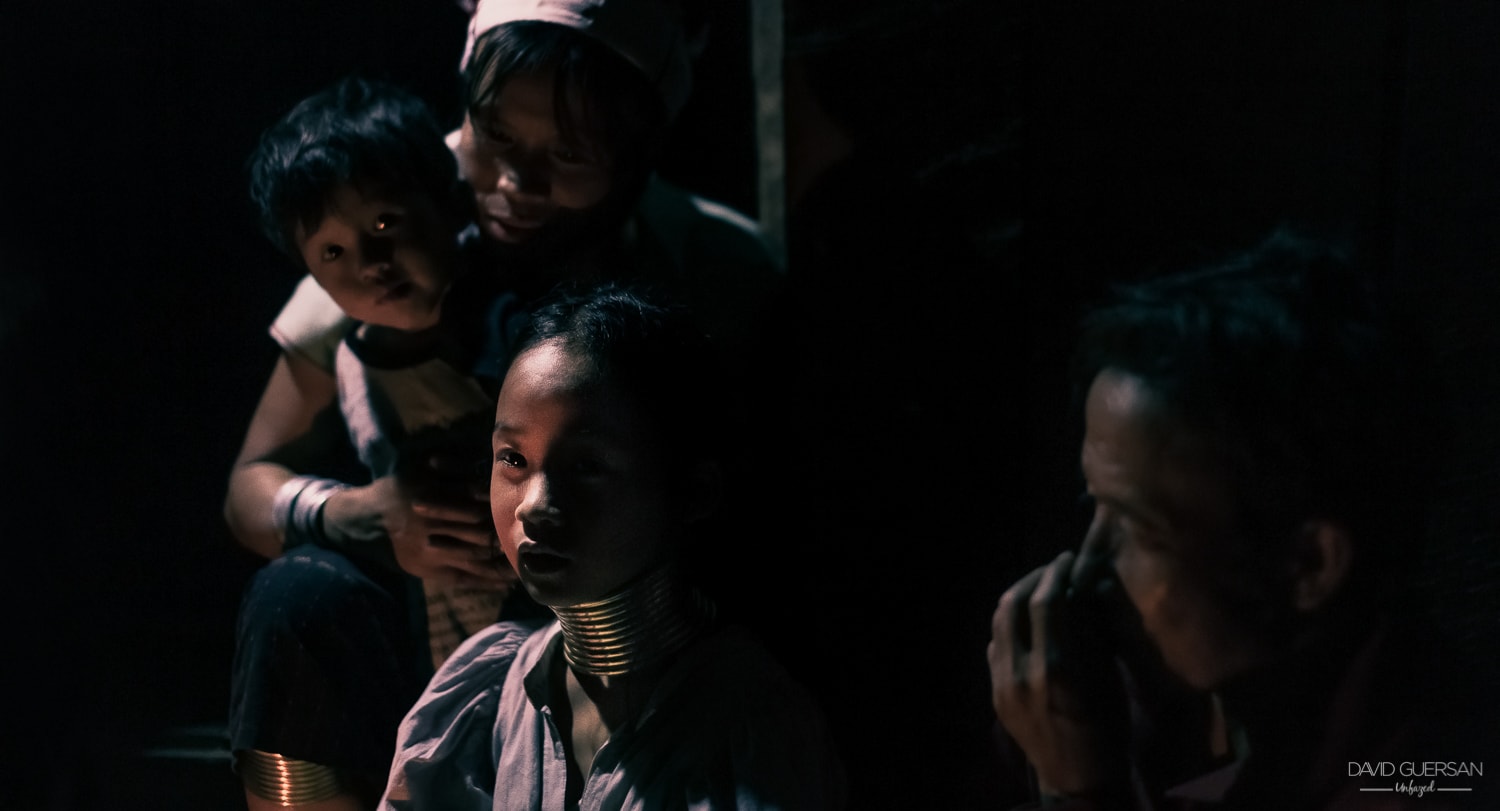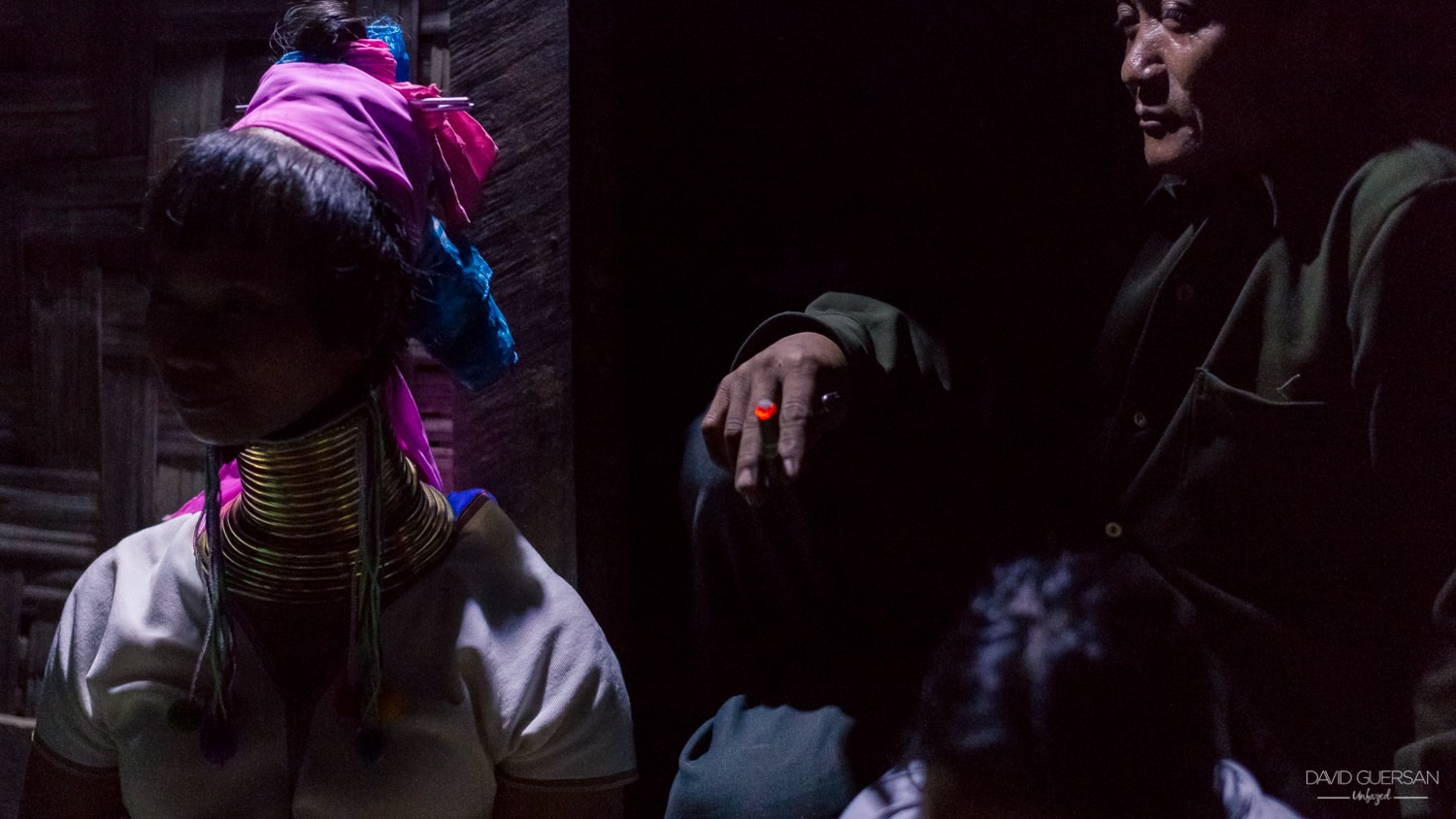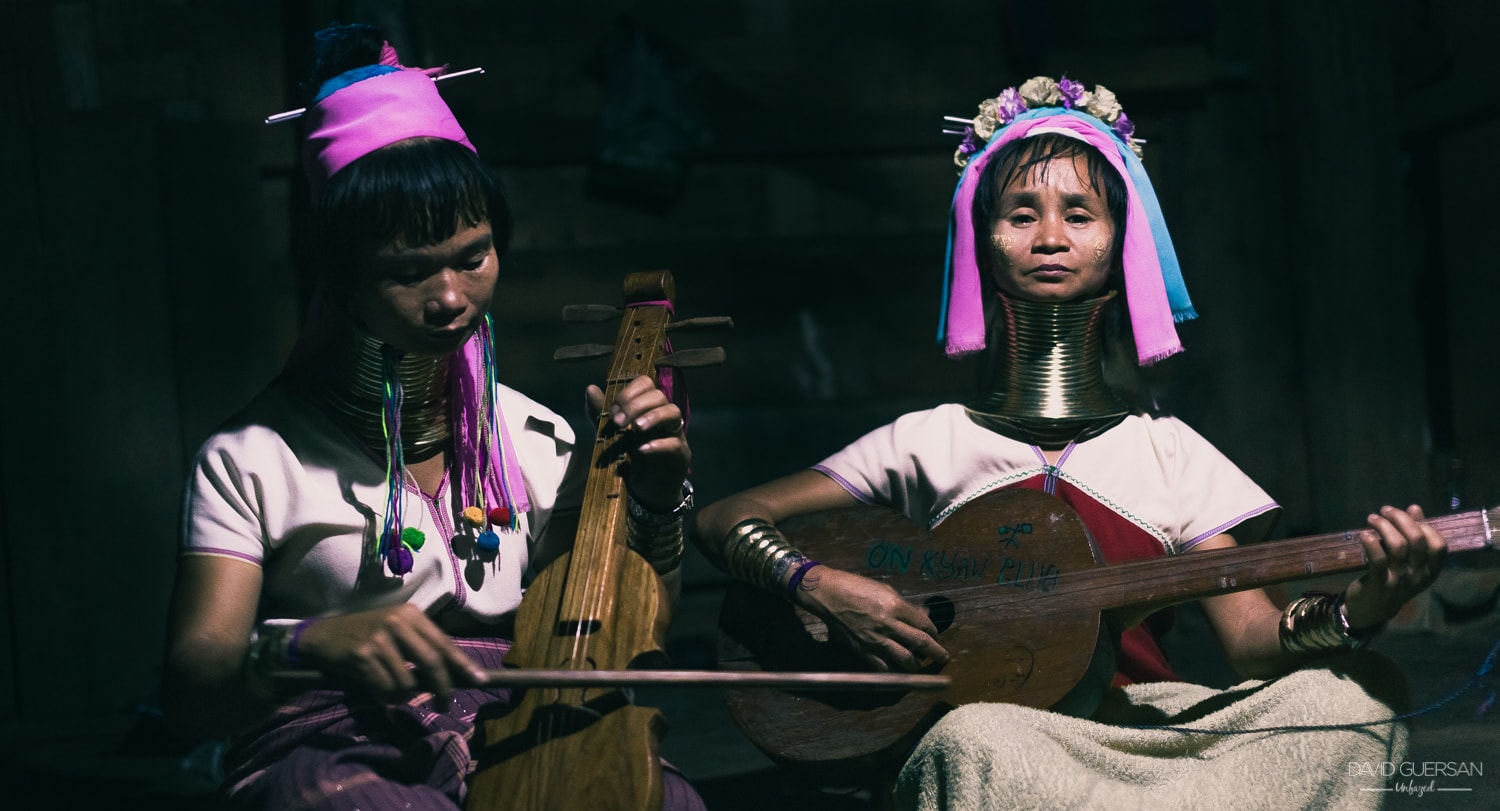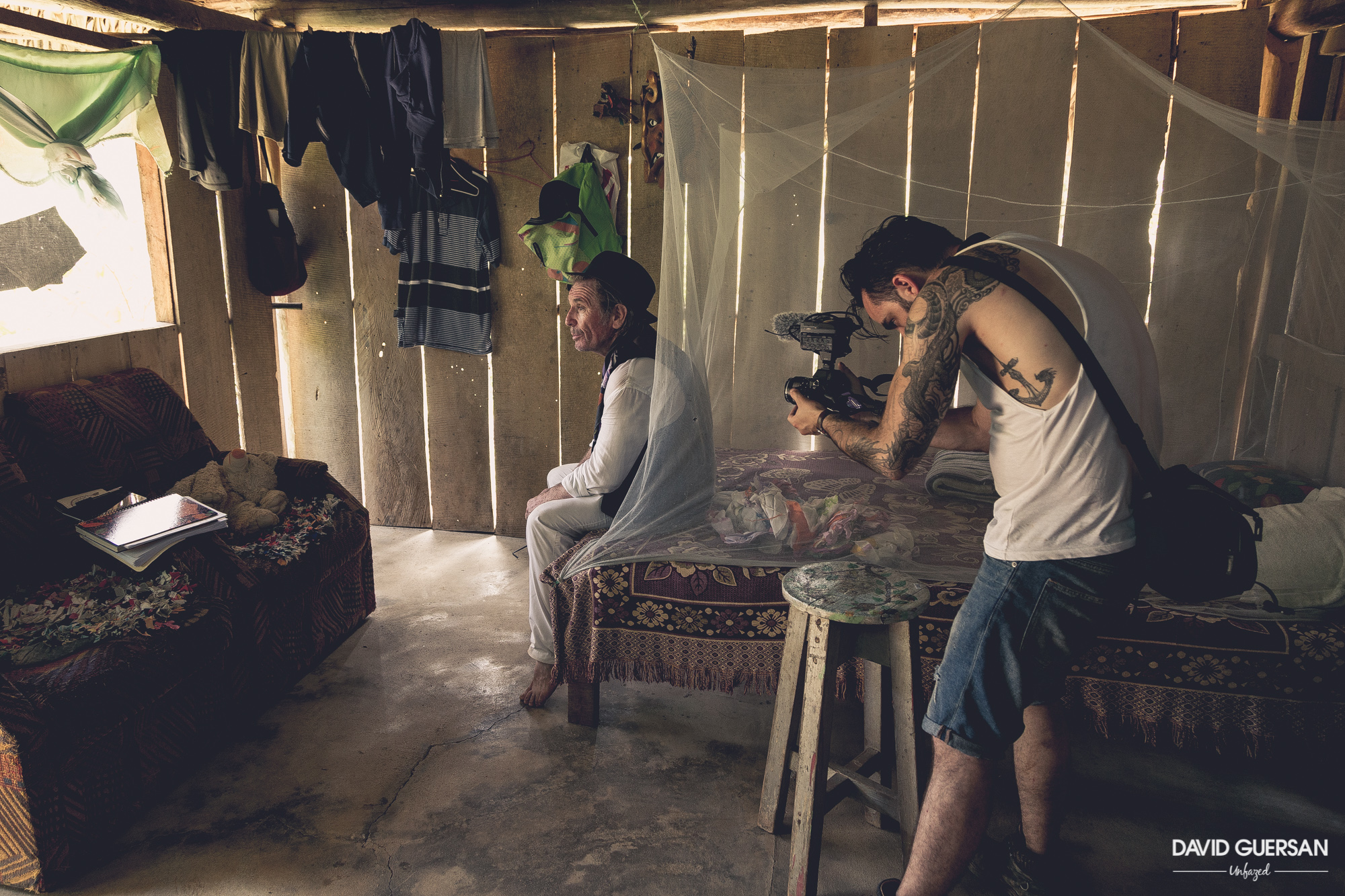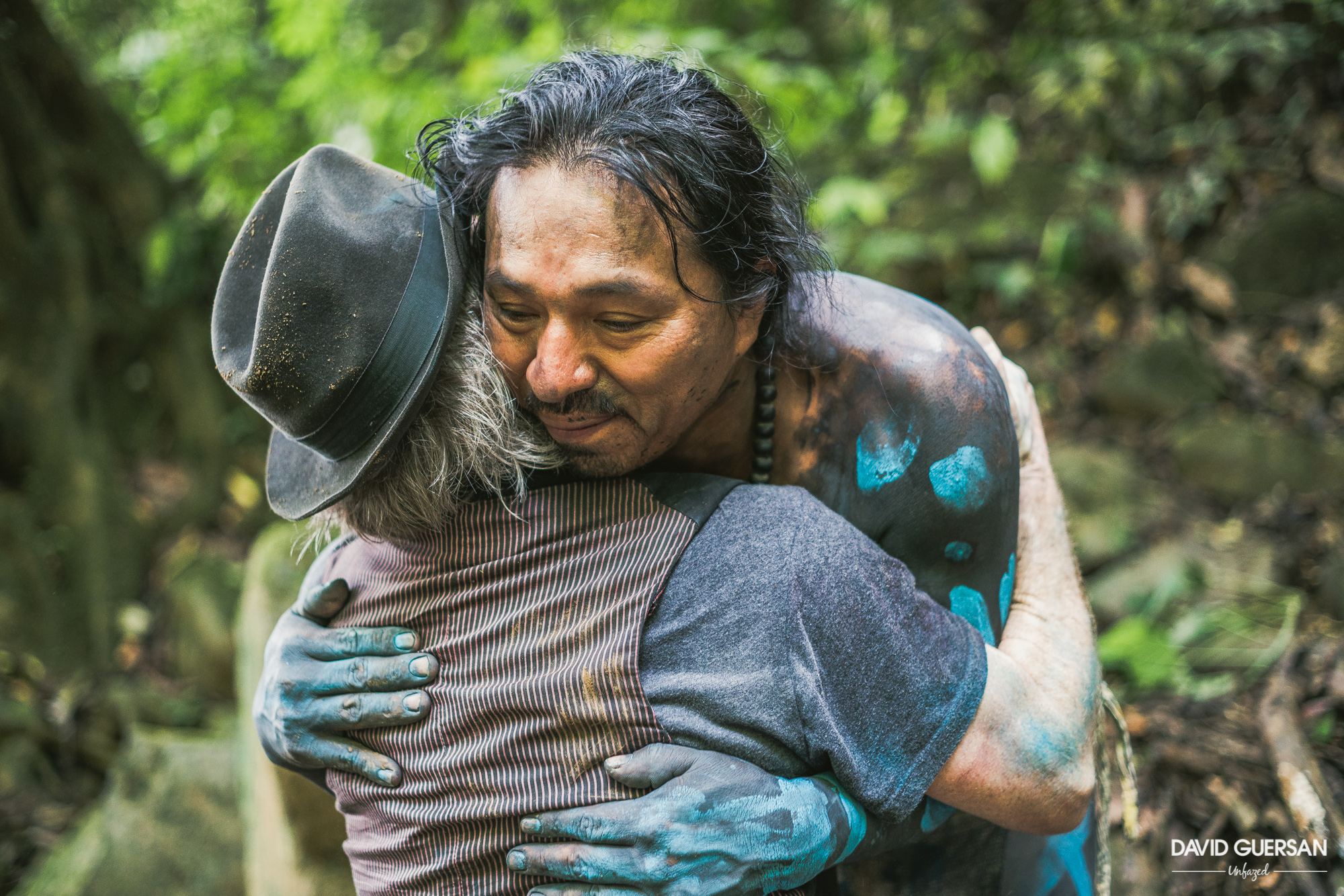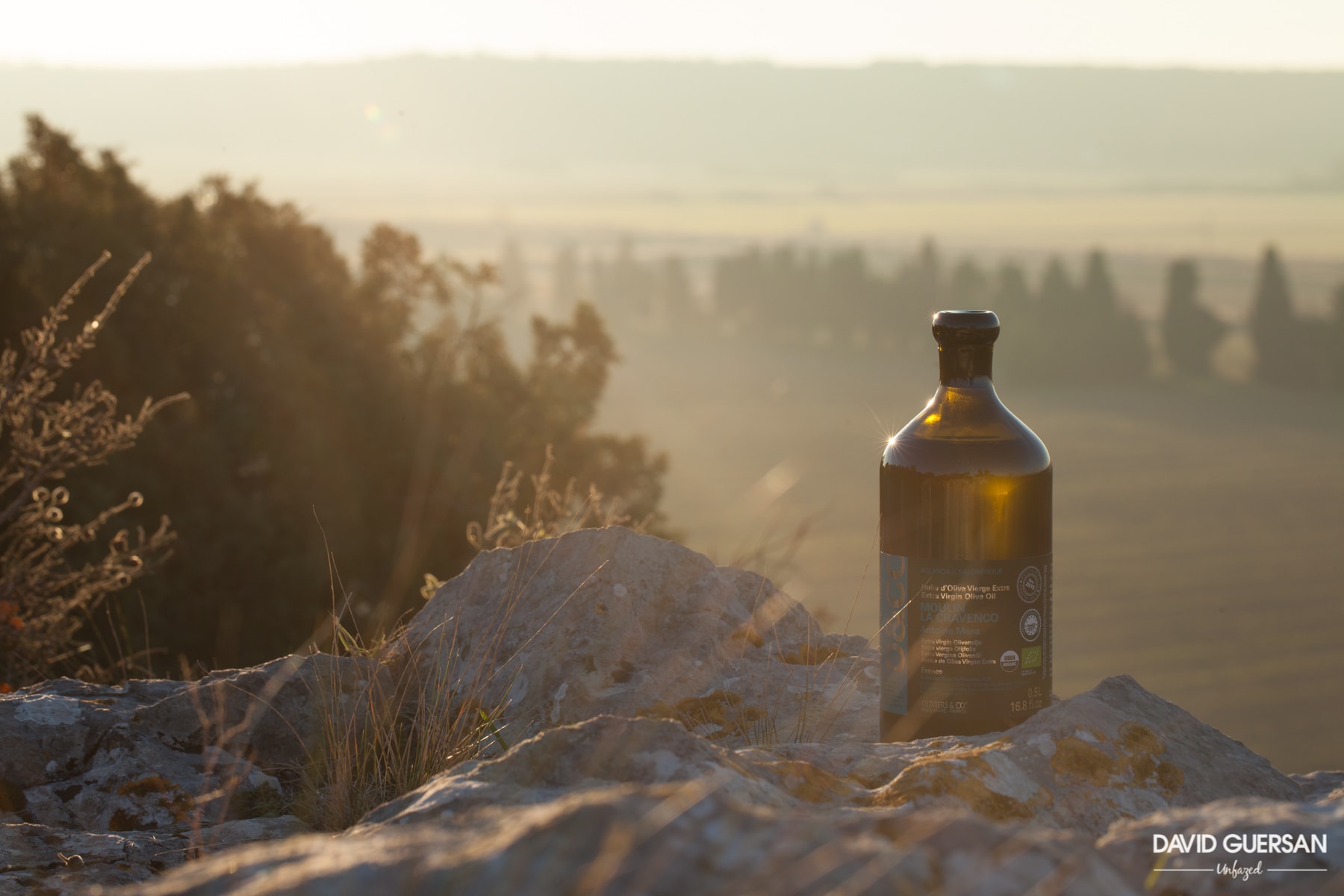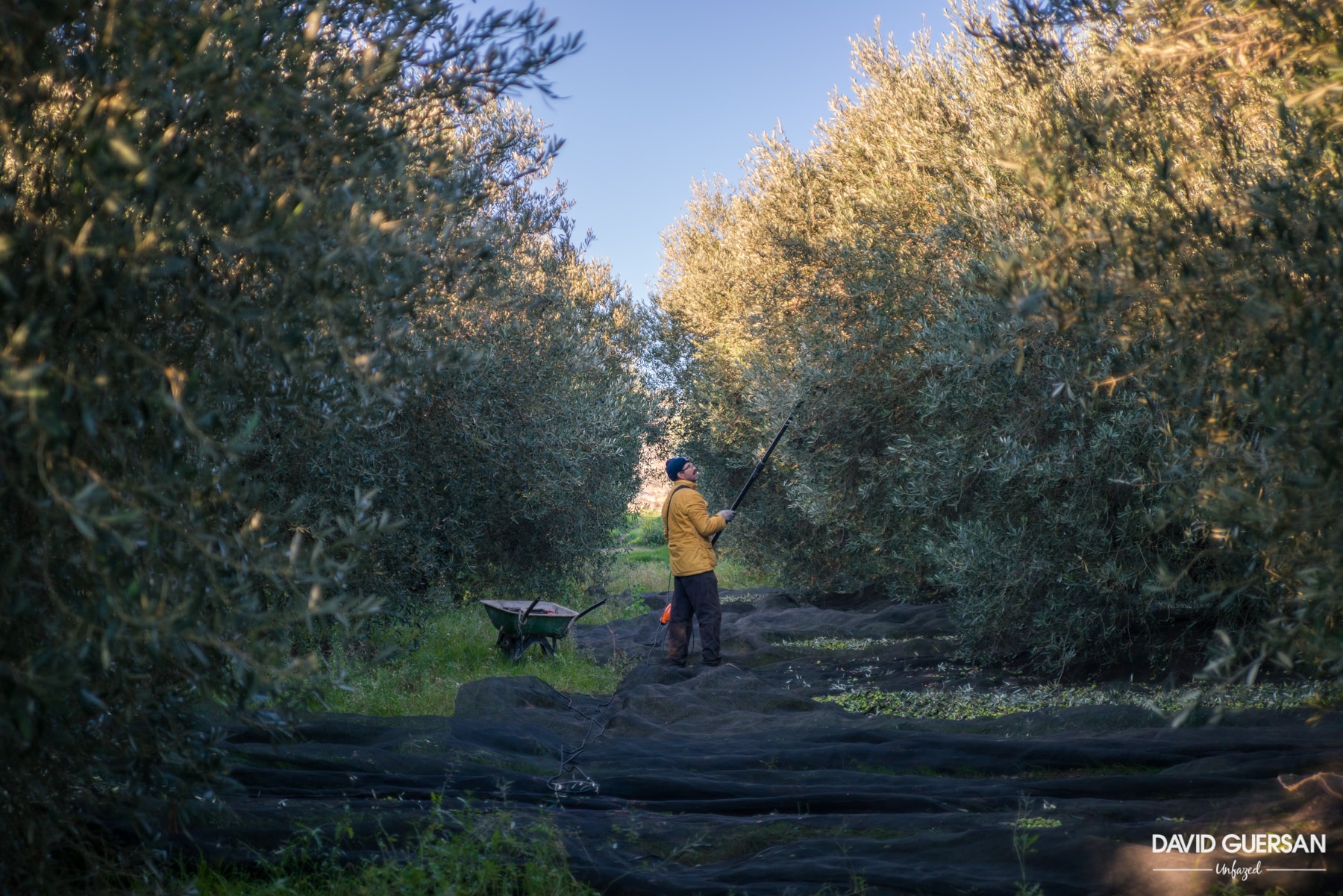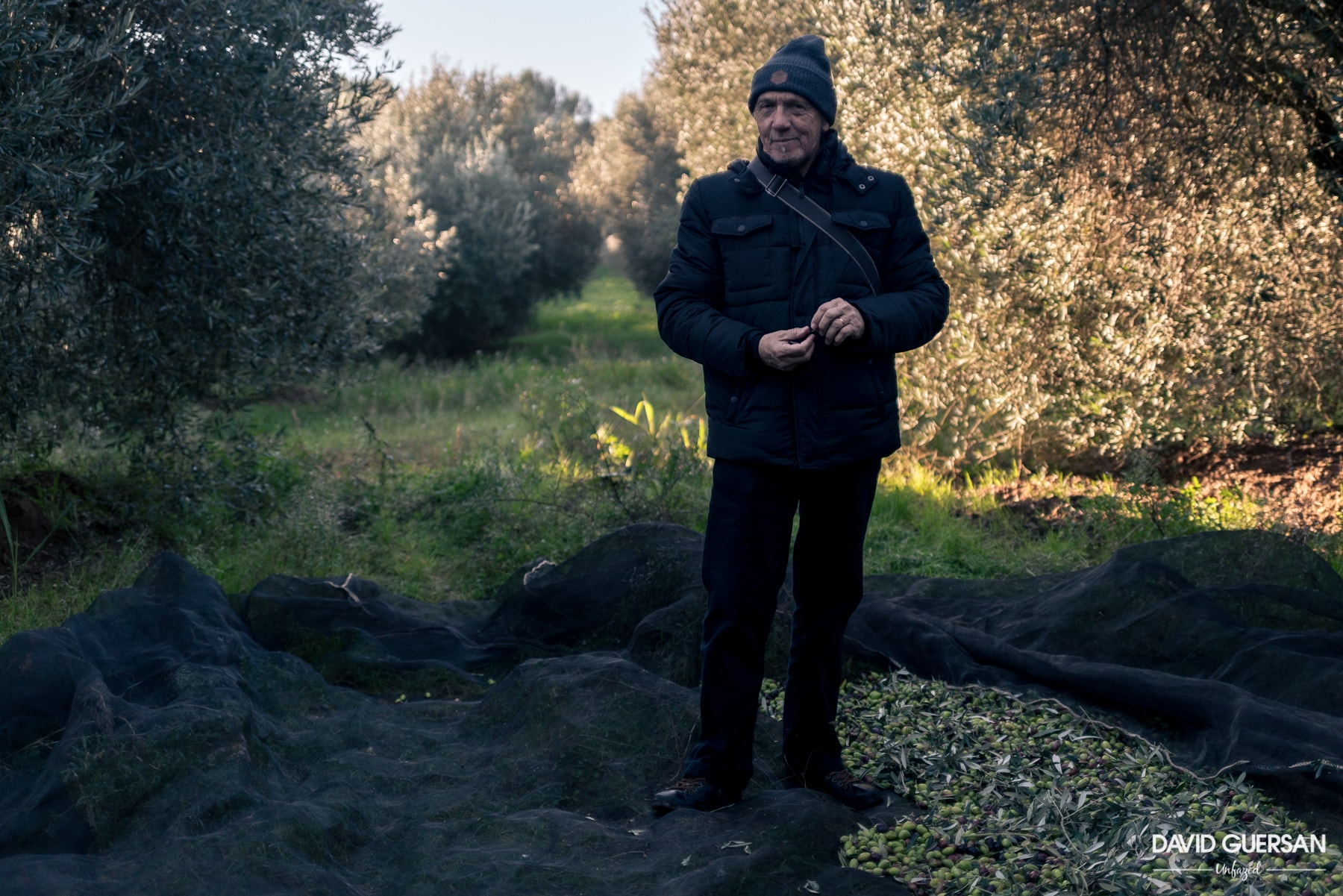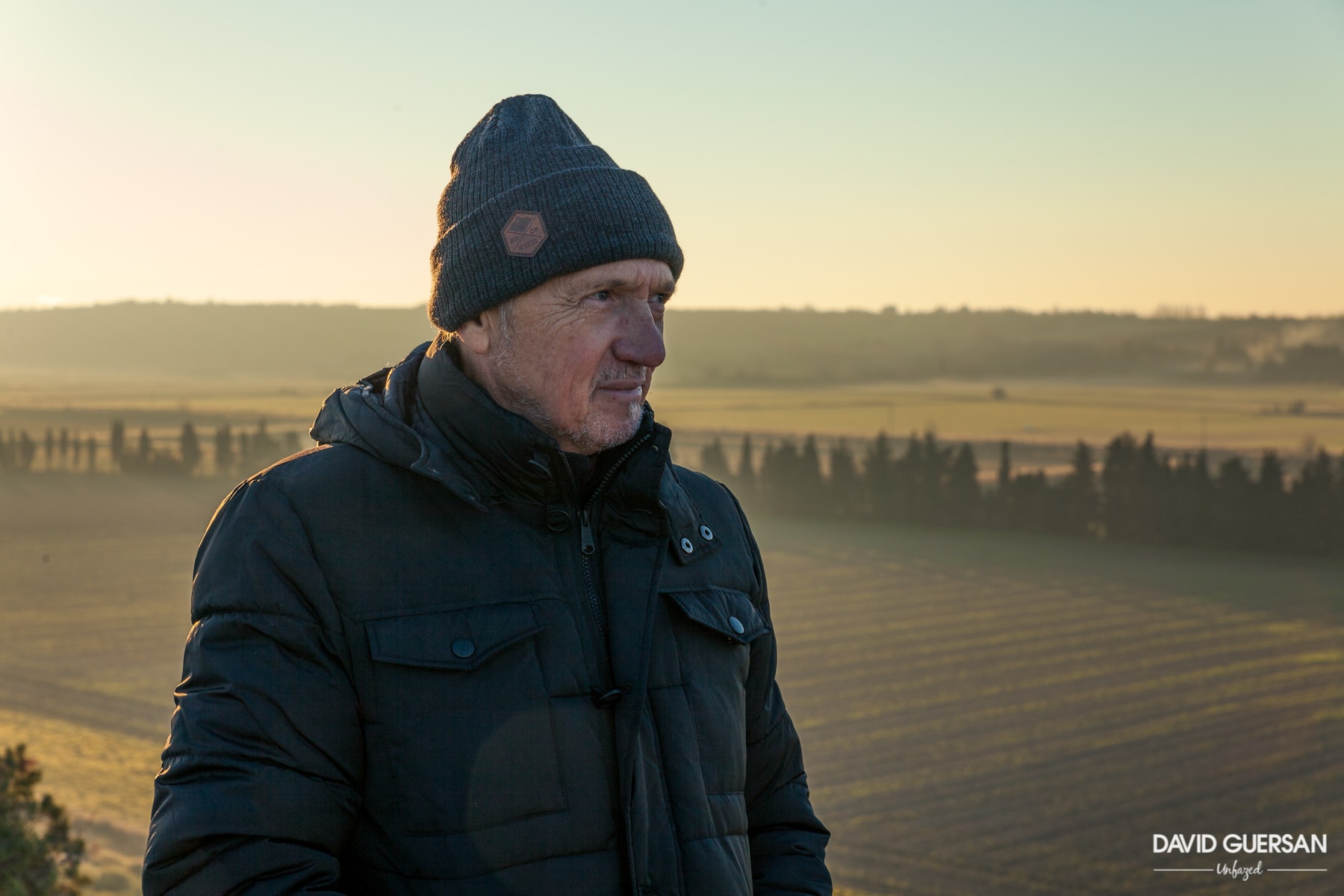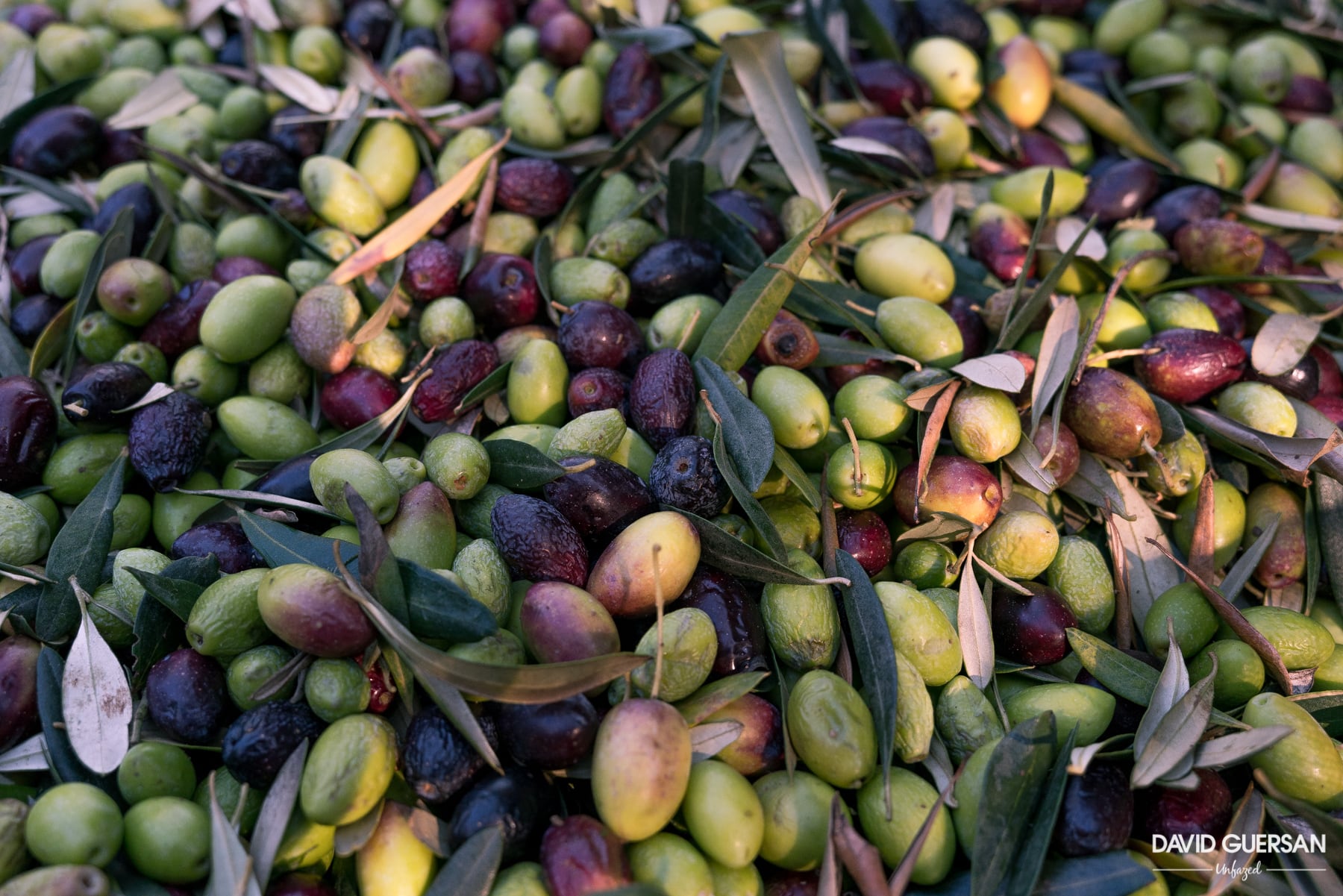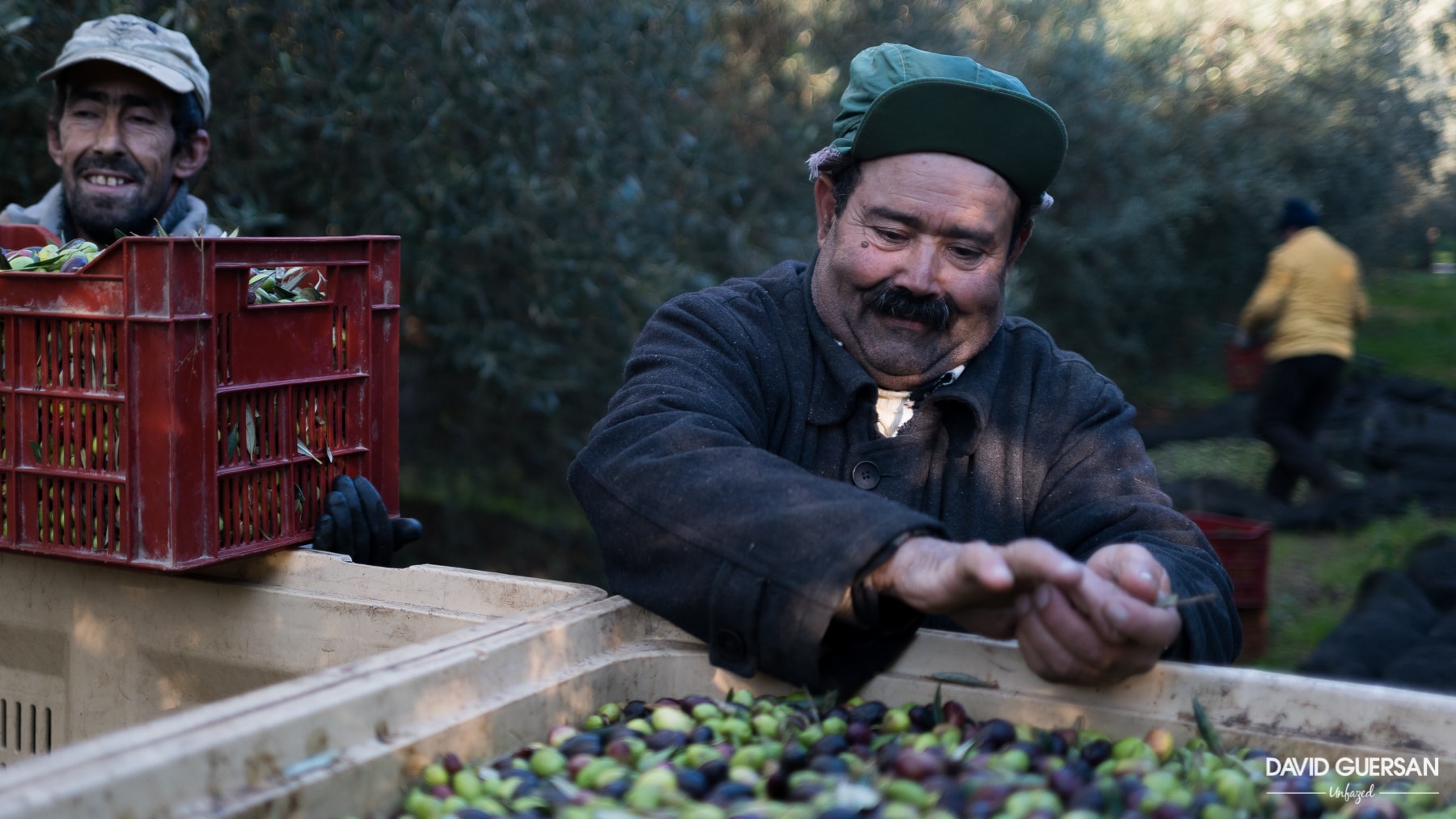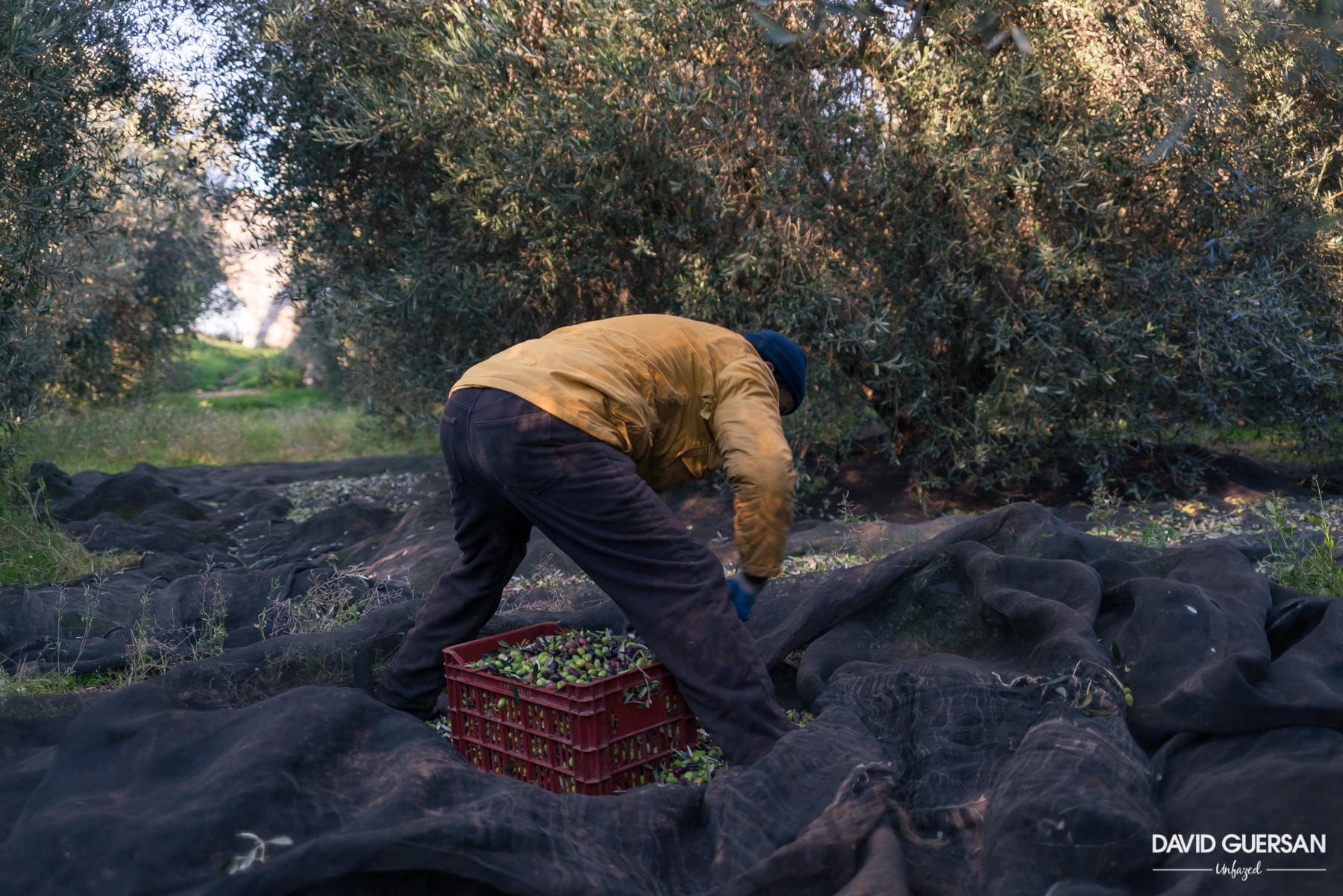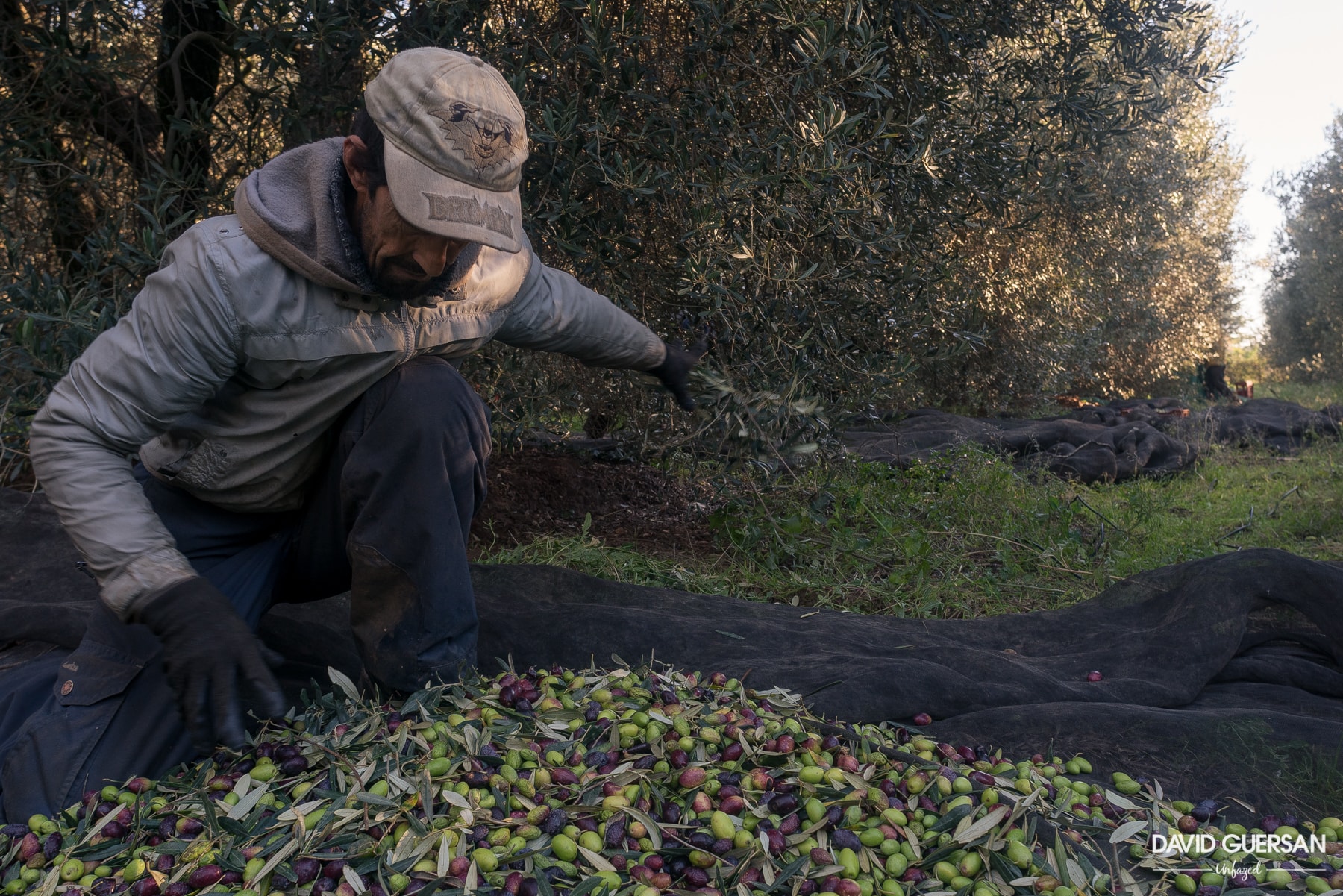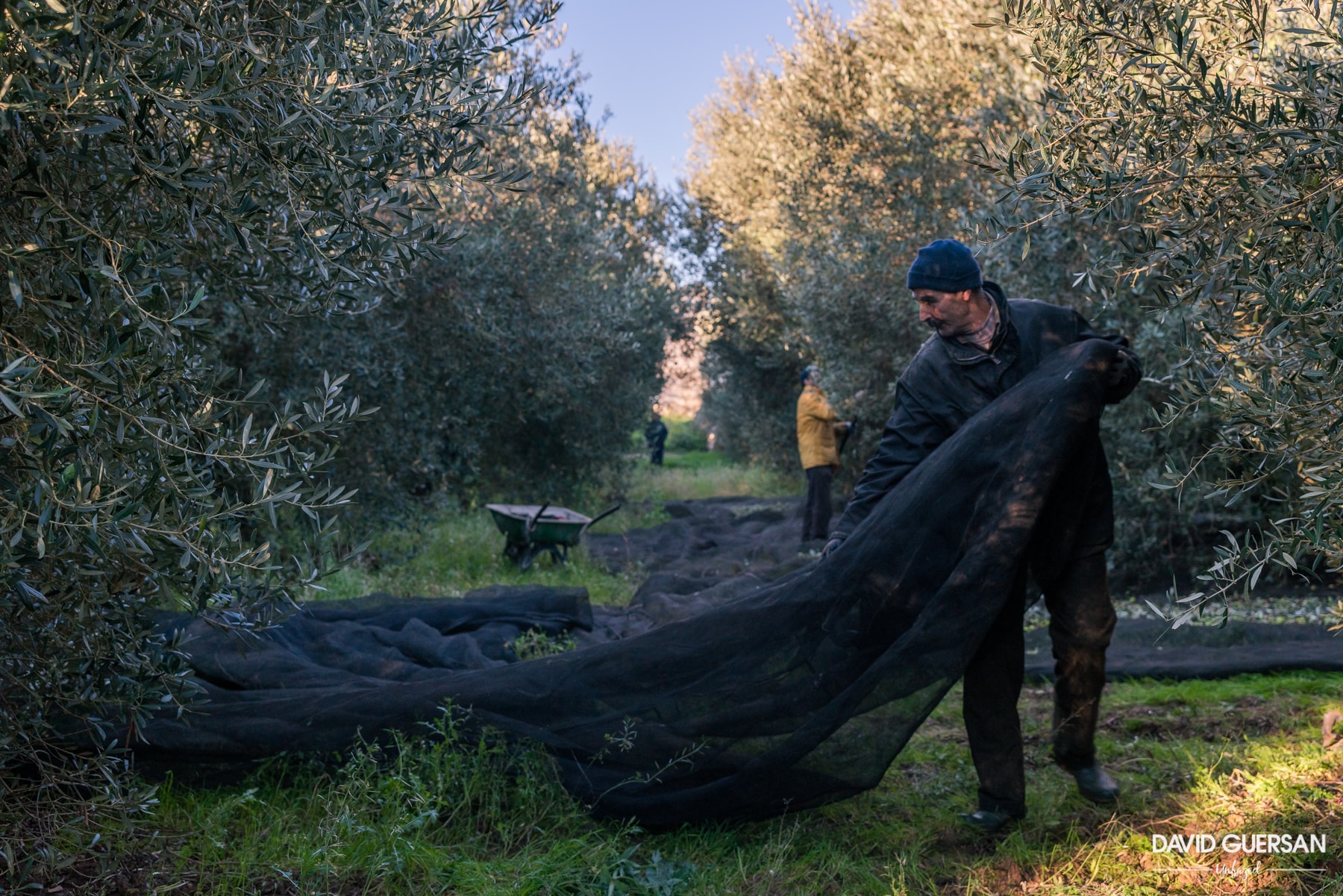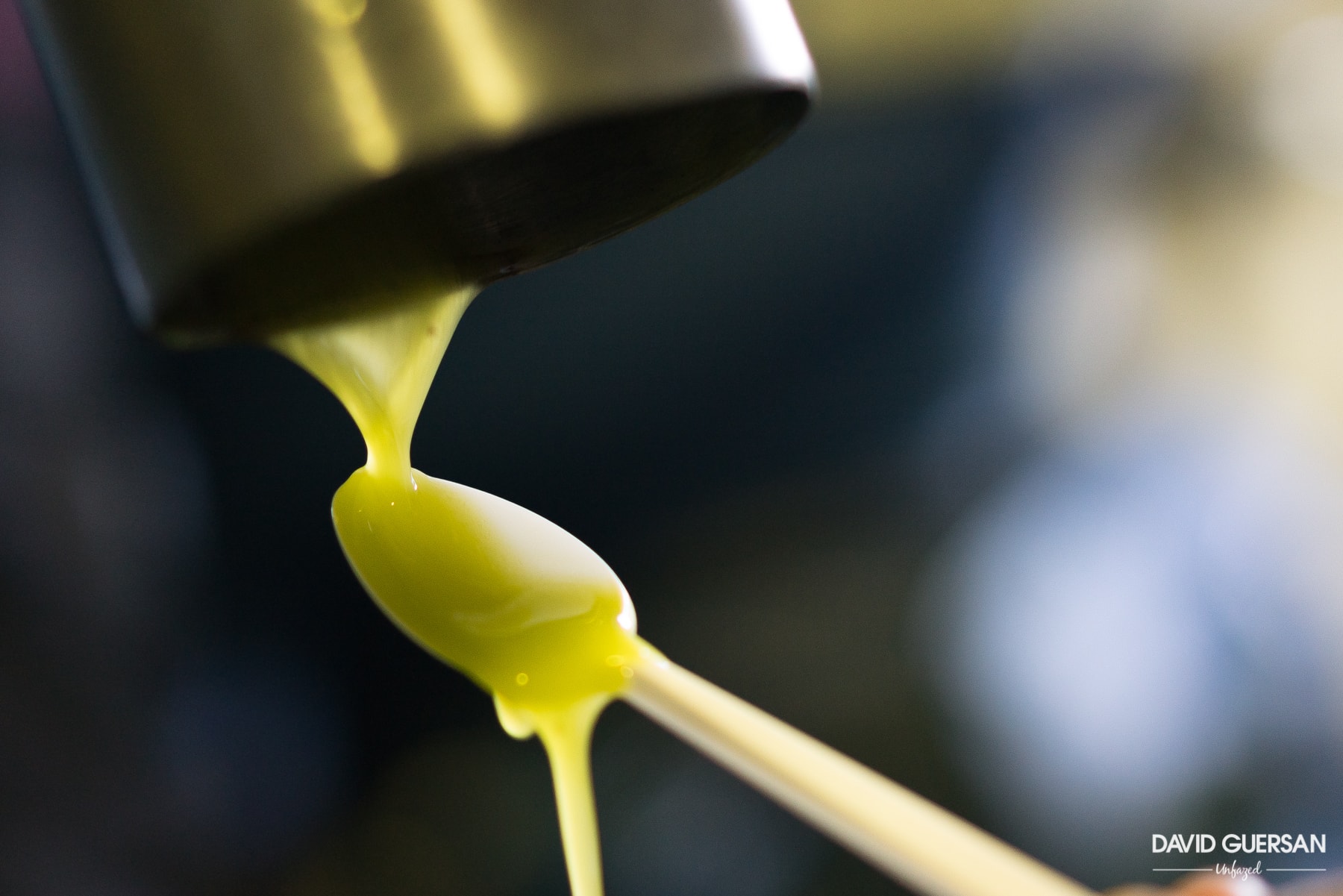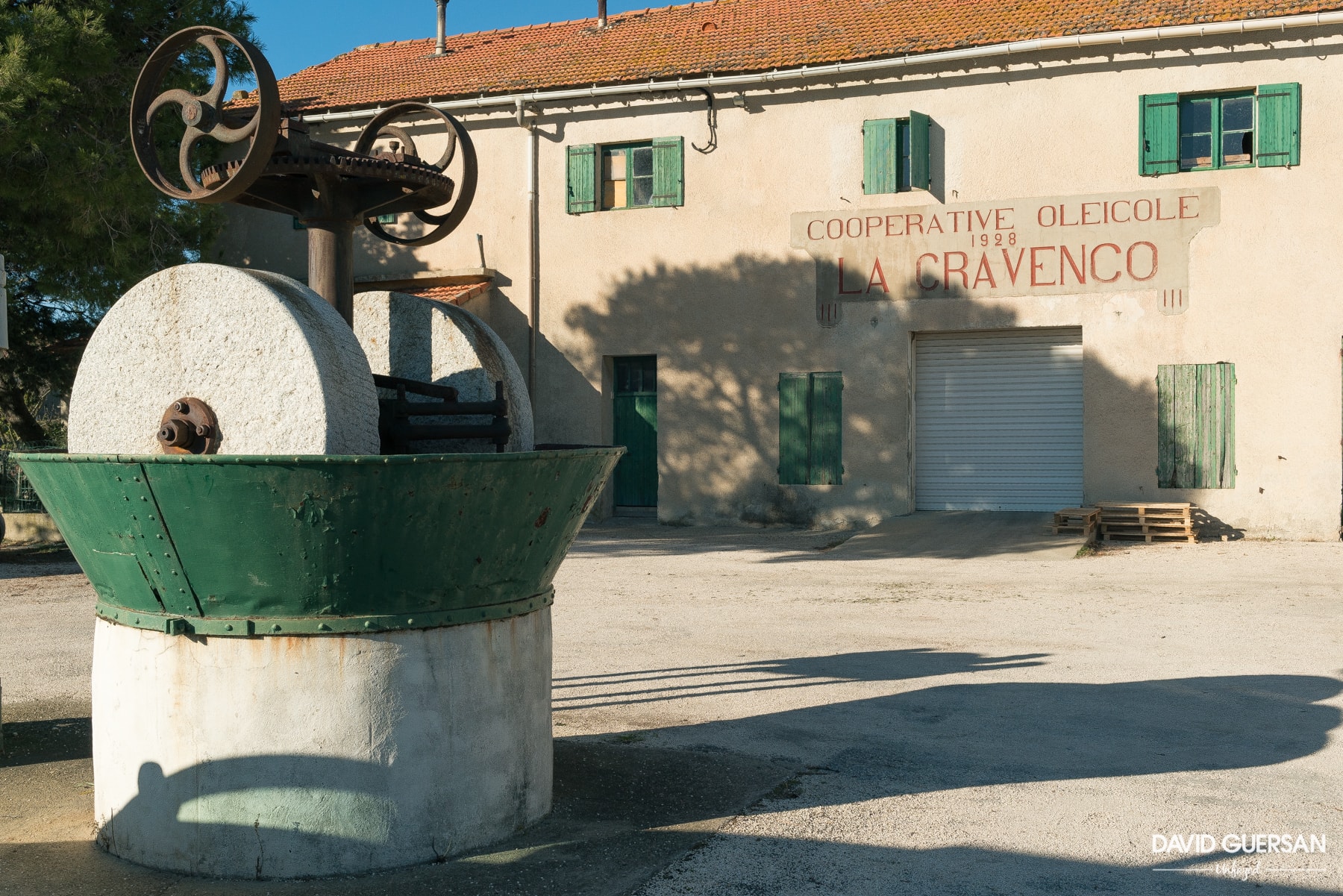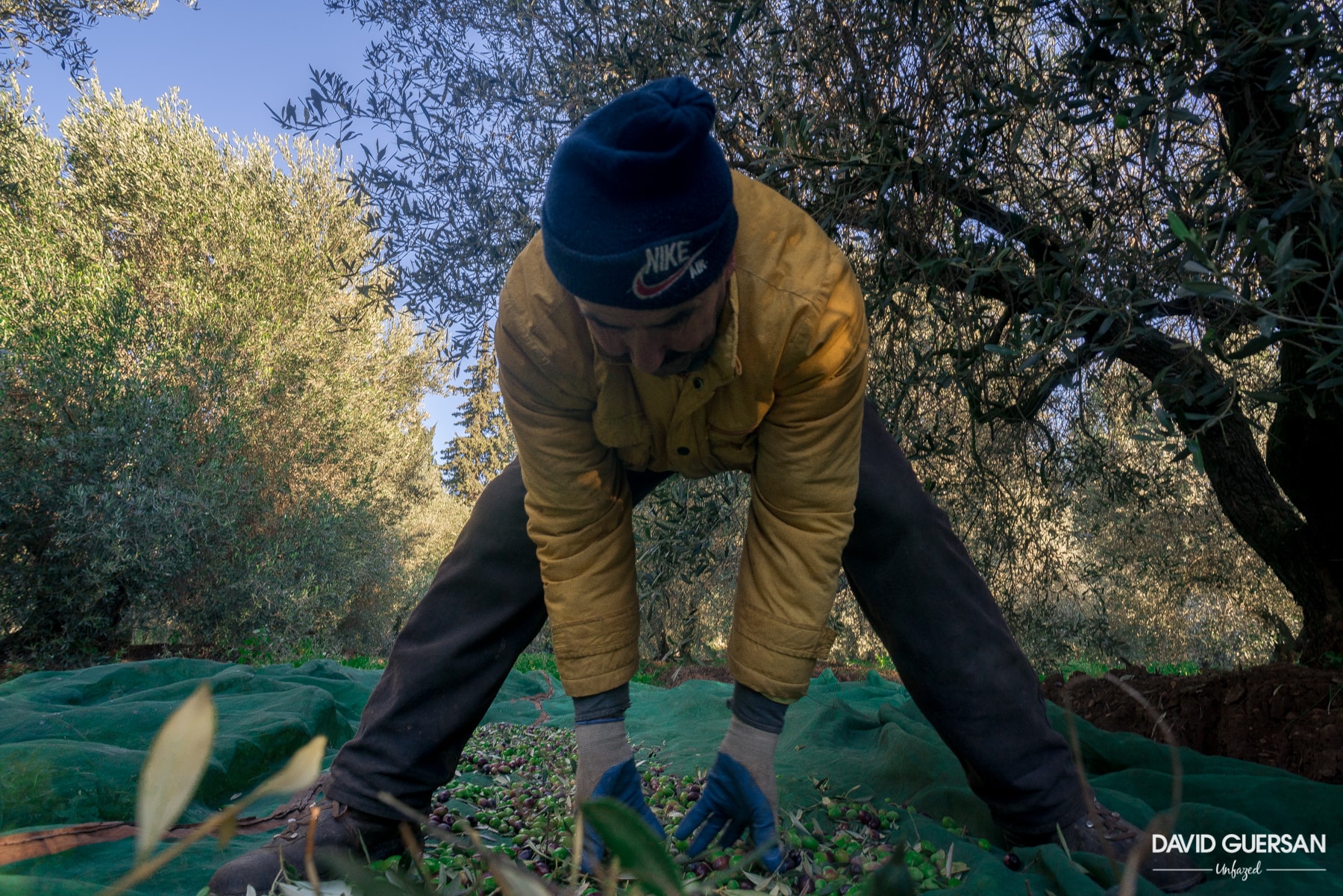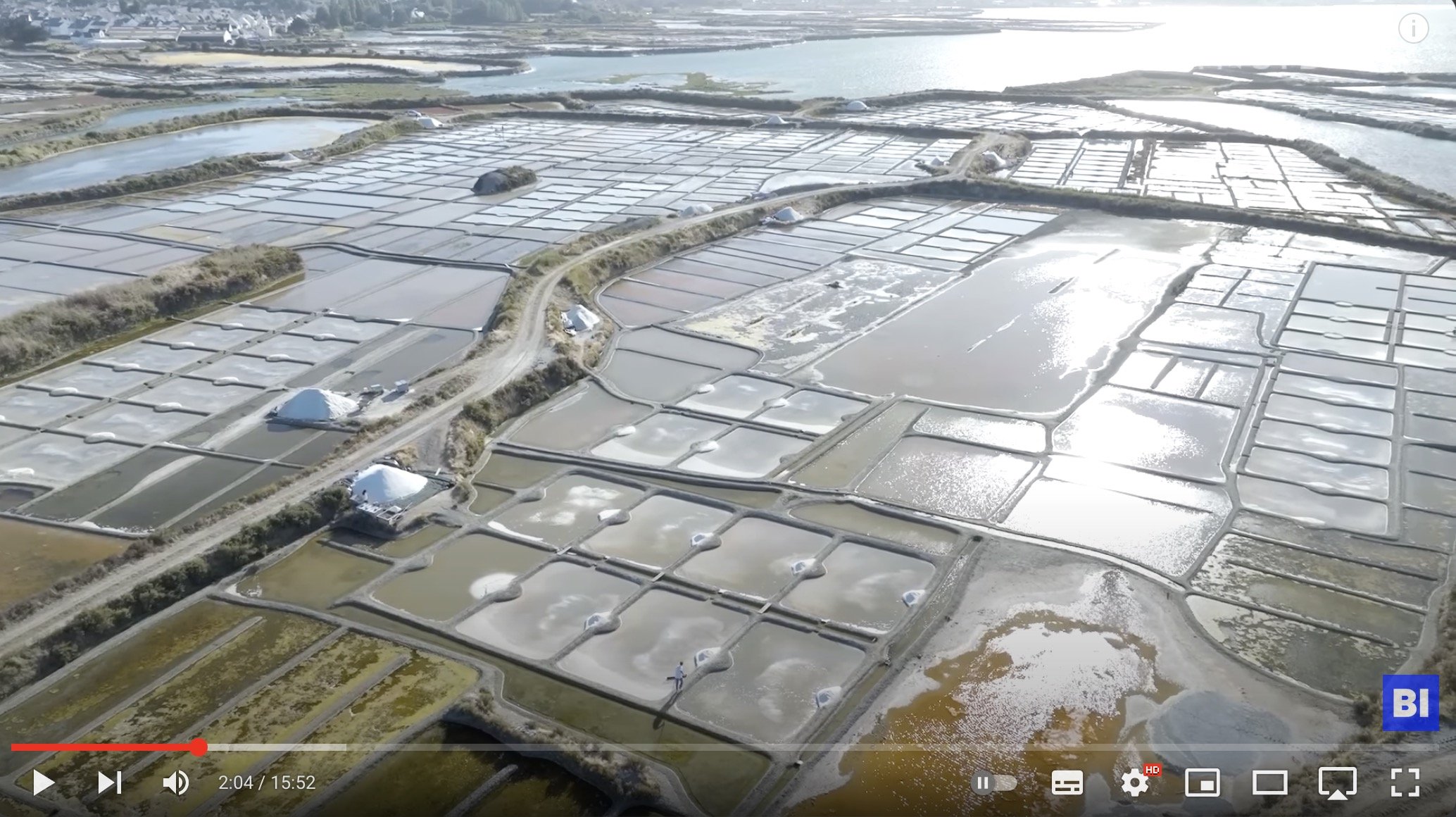24H in a Hill Tribe
« 24 Hours in a Hill Tribe » is the story of a day with a Karen Hill Tribe in northern Thailand.
Mae Hong Son, a remote province here In Northern Thailand. I had arrived into this otherworldly spot after an interesting twist of fate. My path entwined with that of a French film-maker, as I filmed, on the hunt for authenticity, further south In the ancient capital of Sukhothai. David was an adventurer who had slipped societies grasp; he too had been evading the tourist trail, so the maths was easy to do.
Writer : Jamie Farquharson
Photo Journalist : David Guersan
We climb a dry, earthy path, small chunks of dirt tumble back towards the river. There are few traces of technology; the pace of life has slowed. An old moped rests upon a phone box; its communication lines ripped from the ground; small children mingle on the riverbank while a villager casts a fishing net.
For some, a trip to Thailand is about finding the planets finest beaches, for others, a chance to drink themselves silly beneath the light of a full moon. My compadre and I, however, have set our sights on something different.
“Let's get out there man, far from everything!” David, an established filmmaker from Paris, was an adventurer with a lust for life. A few days ago we were just strangers in a temple, then, with the sun on our backs we biked until the roads ran out, sailed along hairpin rivers in a leaking longboat; journeying north for hundreds of kilometres, to taste solitude, the old fashioned way.
Our arrival in Mae Hon Song reaffirms a realisation: that life is about sharing experiences and making connections with the natural world. The province is home to the Karen hill tribes (Kah-ren) who, like most indigenous people have strong communities and a special bond with the land. They live in remote regions of forest, farm with the seasons and despite their current status as refugees, are some of the happiest, most welcoming people I have met during the course of my travels.
According to sacred tales, the Karen people come from a land far away: 'Htee-Hseh-Meh-Ywa’, the place where sand behaves as a flowing river, in Mongolia’s Gobi Desert. They settled in Burma after a long journey through China but after decades of civil war thousands of Karen have sought refuge here in Thailand.
We uncover a village of around 100 people. David armed with his camera, heads into the forest. Curiosity leads me up the hill where I encounter wooden shacks decorated with colourful souvenirs, the interiors filled with spicy aromas.
A small shoeless girl races towards me; she gleefully grabs my knee and presents a tiny paw filled with colourful, handmade bracelets. In the background a female elder grasps a rusty pickaxe, thick chunks of wood are scattered around her feet.
“You want to stay here tonight man!” David emerges from the trees, “they want us to eat with them for lunch too!” My eyes light up, it’s the invitation I've always wanted, to live traditionally, off the land, even if only for a short while. I follow him to a hut walled with bamboo, it perches a few inches above ground level on stilts; baby chicks and hens scratch around in the dirt underneath. A Karen elder sits on the veranda, her neck and knees - dressed in brass rings, an ancient custom said to exhibit beauty.
We are invited to sit in the largest room, there are no chairs and the wooden floor is damp from condensation. Without electricity, the darkness is broken only by beams of natural light that burst through gaps in the bamboo.
A young Karen teen acts as our translator, Muko has absorbed some English from tourists, but I worry that we are intruding, so quiz her about visitors “I like” she says shyly, “my mother too… good for us.” Tourism seems to provide them with the funds that help them maintain their way of life in an ever-changing world. After a traditional Karen dish which nearly blows my head off (they like spice) we wander out towards the river, I notice a group of younger boys who are fishing, one of whom is Muko’s younger brother, Nalpe smiles sheepishly as we offer to help.
In the middle of the water, a scrawny boy dressed in a tatty red t-shirt and shorts is ankle deep on a sandbar. He fiddles with a large net as the others happily sing songs in Kayan - they have rigged up their end of the net to large bamboo poles, which assist them in their pursuit for the evening meal.
Rice whiskey is passed around the group, I become the source of jokes again as everyone (including David) laughs uncontrollably while I cough and splutter; it feels like the alcohol is setting fire to my insides as it winds its way down my throat.
We talk about love, life and culture until the early hours, the villagers refuse to retire until our yawns become more frequent, Nalpe kindly offers to lead us back to our shack for the evening.
We are told that the Karen believe that the earth, the moon and the stars are all connected by a web, that we are all linked somehow. I find it hard to argue as a belt of blinding light illuminates our path from above, we watch on in awe, as a swathe of shooting stars ping against the boundaries of the universe.
David and I catch nothing... but thankfully the boys (who are about 25 years younger) have demonstrated their expertise, the village it seems, will not go hungry.
Muko invites us to a family home where most people have gathered. I notice a group of youngsters who are constructing a fire - sounds of music and laughter entice us inside; the elders have arranged themselves in a circle, children scatter in and out.
We are invited to participate in traditional song; an old Kayan elder sings harmoniously with her husband, she passes an old dusty violin in my direction, the group laughs loudly as the instrument groans; I am desperately out of tune. Darkness soon surrounds us, a solitary candle flickers at my feet, the melted wax holds it in place, it is the only source of light.
Volontary Return Serie
Around : TUNISIA - MALI - SENEGAL - CAMEROUN - ARMENIA - MOROCCO
This year I directed 12 films Portraits of foreigners having been helped by the OFII : French Office for Immigration and Integration (attached to the Ministry of the Interior) for the socio-professional return in their country of origin.
Today each of these people received a support by the OFII to bring to a successful conclusion their new life projects.
Produced by Burgundi Prod, we went to meet them in their country.
We followed each person for 2 days and transcribed in each of the films their new life and hope for the future.
Created in 1945, OFII, French Office for Immigration and Integration is now the only French State’s operator in charge of immigration procedures (family, student and professional), the reception of asylum seekers, the integration of new arrivals and the voluntary return and reintegration of foreign nationals.
More here : voluntaryreturn.fr/
Filmmaker & Editor : David Guersan
Producer : BURGUNDI / Alexandre Meernout
Producer Ex : BURGUNDI / Corentin Marchand
Producer Ass : BURGUNDI / Aymeric Bagic
NON CUANXA / Spicee
Documentaire auprès du peuple indigène de Boruca,
au Costa Rica.Produit par SPICEE
Début Juin, j'ai rencontré Antoine Robin, Fondateur de SPICEE qui m'a proposé de le rejoindre pour un sujet documentaire hors du commun au Costa Rica dans sur la population indigène de Boruca.
Le sujet reste encore confidentiel, mais voici une retrospective en photo de cette semaine en compagnie du grand photographe et réalisateur Christophe GSTALDER.
Oliviers&Co : Portrait d'Oléiculteur
Portrait d'Oléiculteur pour la Marque Oliviers&Co à la Ferme de la Cranvenco en Provence, Region de Arles.
Filmé en Sony A7RII + Loxia 35 mm + Nikkor 20 mm + Zeiss 55 mm
Réalisateur & Monteur : David Guersan
Journaliste : Agathe Welcomme
Production : Les Petits Fabricants



